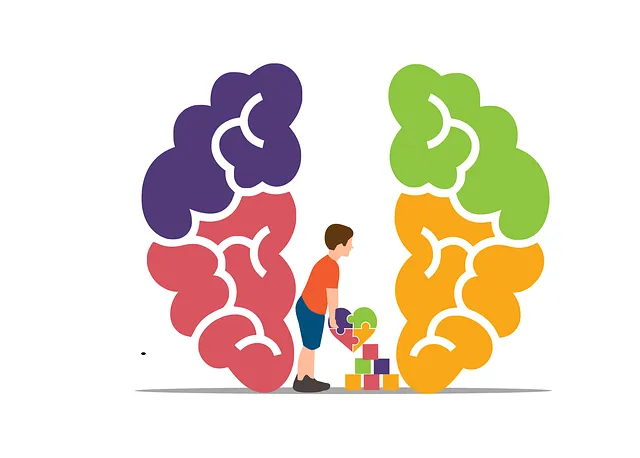Community outreach programs, such as those offered by Kaiser in Englewood, play a crucial role in delivering essential mental health support to underserved populations. Through these initiatives, communities can foster emotional well-being, provide tailored interventions, and empower individuals to overcome challenges. Englewood's Mental Health Initiative, a collaborative effort between residents, local organizations, and Kaiser Permanente, serves as a model for community-driven mental wellness programs. By offering tailored services like depression prevention and trauma support, it addresses historical resource gaps. With Kaiser's expertise, these programs enhance trust, encourage participation, and promote open dialogue, significantly improving overall well-being in underserved communities like Englewood, where access to mental health services is often limited.
Community outreach programs play a pivotal role in bridging the gap between healthcare services and underserved populations. This article explores the significance of such initiatives, focusing on mental health awareness through the lens of Englewood’s successful program. We delve into strategies for effective implementation and address challenges faced by communities, particularly in accessing mental health services. With a case study highlighting Englewood’s Mental Health Initiative, and considering if Kaiser offers similar services, this guide provides insights for organizations aiming to make a tangible impact on community well-being.
- Understanding Community Outreach: Why It Matters and Who Benefits
- Englewood's Mental Health Initiative: A Case Study
- Implementing Effective Outreach Programs: Strategies for Success
- Overcoming Challenges: Navigating Barriers to Accessing Mental Health Services in Underserved Communities
Understanding Community Outreach: Why It Matters and Who Benefits

Community outreach programs play a pivotal role in bridging the gap between healthcare services and underserved populations, such as neighborhoods like Englewood where access to resources can be limited. Understanding community outreach is crucial because it matters deeply for several reasons. It ensures that essential services, including mental health support offered by organizations like Kaiser, reach those who need them most. This initiative benefits not just individuals but also the community at large by fostering emotional well-being promotion techniques and trauma support services.
By implementing these programs, organizations can provide tailored interventions to address specific needs within diverse communities. For instance, in Englewood, where social skills training might be particularly beneficial, outreach workers can identify barriers to access and develop creative solutions. This approach not only improves the quality of life for residents but also strengthens community resilience by empowering individuals with the necessary tools to navigate challenges, ultimately leading to a healthier and more connected society.
Englewood's Mental Health Initiative: A Case Study

Englewood’s Mental Health Initiative serves as a compelling case study for community outreach programs aiming to improve mental well-being. This initiative, in partnership with Kaiser Permanente, offers a comprehensive range of services, including depression prevention programs and trauma support services, tailored to meet the unique needs of the Englewood community. By leveraging community engagement and accessible healthcare, the program has successfully addressed the lack of mental health resources historically available in this area.
The collaboration between Englewood residents, local organizations, and Kaiser’s expertise has fostered innovative communication strategies that encourage open dialogue about mental health. Through workshops, support groups, and one-on-one counseling sessions, the initiative breaks down barriers, reduces stigma, and ensures that individuals have access to professional help. This holistic approach not only caters to immediate needs but also empowers community members with the tools necessary for long-term mental health management.
Implementing Effective Outreach Programs: Strategies for Success

Implementing effective community outreach programs requires a strategic approach that goes beyond mere awareness campaigns. Englewood, for instance, where Kaiser offers mental health services, has seen success through tailored initiatives addressing specific needs within diverse communities. By integrating self-esteem improvement and compassion cultivation practices, these programs foster deeper connections and encourage participation.
A robust mental health policy analysis and advocacy strategy is paramount. Engaging community leaders and stakeholders ensures that outreach efforts are culturally sensitive and relevant, fostering trust and buy-in. Tailoring programs to address local concerns, such as those faced in Englewood, can significantly enhance their impact. This holistic approach not only improves mental health but also cultivates a sense of collective well-being, ensuring sustained success.
Overcoming Challenges: Navigating Barriers to Accessing Mental Health Services in Underserved Communities

In underserved communities like Englewood, accessing mental health services often presents unique challenges. Barriers to care include limited resources, lack of awareness, and cultural or linguistic differences. For instance, residents in Englewood might face difficulties reaching specialized mental health facilities, especially if they are geographically distant or transportation options are scarce. This issue is further exacerbated by financial constraints that prevent individuals from seeking professional help. Kaiser, however, has recognized these challenges and works to bridge the gap through community outreach programs, ensuring that mental health services are accessible to all.
One effective strategy Kaiser employs is offering on-site stress reduction methods tailored to the specific needs of Englewood residents. Providing anxiety relief resources and guidance on mental wellness journaling exercises not only empowers individuals but also fosters a sense of community support. By combining these initiatives with cultural sensitivity, Kaiser aims to overcome historical mistrust and create an environment where mental health discussions thrive, ultimately improving overall well-being in underserved areas like Englewood.
Community outreach programs, such as Englewood’s Mental Health Initiative, demonstrate the profound impact of accessible healthcare. By focusing on underserved areas and implementing successful strategies, organizations like Kaiser can significantly improve mental well-being. Overcoming challenges related to access requires a deep understanding of community needs and tailored solutions. This comprehensive approach ensures that everyone, regardless of their background, has the opportunity to thrive and seek the support they deserve for their mental health. Englewood’s initiative serves as a compelling example, highlighting the potential for positive transformation when communities and healthcare providers work together.






